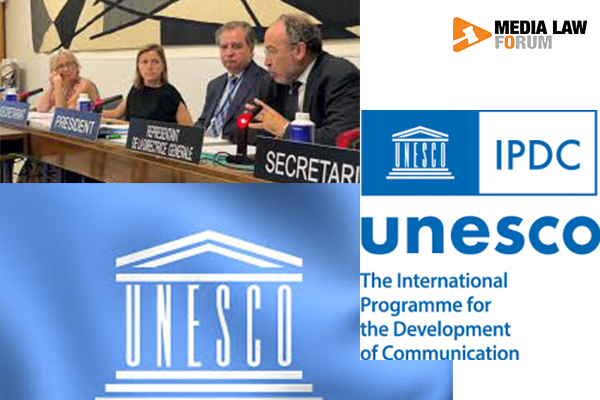The IPDC Bureau—comprising eight of the 38 elected Member States that make up the Programme’s intergovernmental Council—demonstrated a strong global reach with projects spanning five regions. Nine projects (43%) will be implemented in Africa, five (24%) in Asia and the Pacific, three (14%) in Latin America and the Caribbean, one (5%) in the Arab States, and three (14%) in Central and Eastern Europe. Nearly half of the projects (10) will be carried out in Least Developed Countries, and two (9.5%) in Small Island Developing States.
In alignment with UNESCO’s global priority of gender equality, all approved projects incorporate gender-sensitive approaches. Notably, 62% include gender-specific programming aimed at promoting gender equality in and through the media.
The Bureau also adopted a reserve list of 18 high-ranking projects which may be funded through new contributions recently pledged by donors. Combined with already confirmed funding, these projects could bring total IPDC support for media development initiatives to approximately USD 1.65 million.
Each year, IPDC calls for project proposals from grassroots actors to support local media development, training, research, and dialogue in developing countries, countries in transition, and those experiencing conflict or post-conflict recovery. These locally driven initiatives address specific needs at national and regional levels.
UNESCO’s Assistant Director-General for Communication and Information, Tawfik Jelassi, emphasized the enduring impact of the Programme:
“For over 40 years now, IPDC has supported the development of independent and pluralistic media around the world. Building the capacity of our partners on the ground, and keeping in mind their unique environments and needs, is central to that success. IPDC has particularly worked to strengthen minority voices and ensure representation and inclusion in and through the media.”
This year, the Bureau also approved five special allocations totaling USD 214,000. These complementary initiatives aim to enhance IPDC’s ability to tackle emerging issues such as media viability and environmental journalism.
Alongside the approval of new projects, the Bureau reviewed the results and lessons learned from initiatives completed in 2024, as summarized in a publicly available results-based report.
Two beneficiaries joined the meeting virtually to share the tangible impact of IPDC support:
In Ethiopia, Tanzania, and Uganda, the Collaboration on International ICT Policy for East and Southern Africa (CIPESA) addressed the disproportionate risks faced by women journalists, including online harassment, sexual violence, and impunity.
“Through the research we conducted alongside UNESCO on the safety of journalists, we discovered that while some individuals perceive themselves as being aware of digital safety, they often do not apply this awareness in practice. This project allowed us to reinforce the value of digital security practices—both at an individual level and in the context of journalism,” said Juliet Nanfuka from CIPESA.
In Sri Lanka, the Media Law Forum produced a series of educational videos on hate speech and ethical journalism in Tamil, Sinhala, and English, while training journalists on relevant laws.
“We engaged both local and international experts to discuss how existing hate speech laws were being used — or misused. Based on these discussions and findings, we developed a policy reform document, which proposes a range of recommendations for legal reforms — ensuring that hate speech laws can be implemented effectively, while also safeguarding freedom of expression. Today, I am proud to say that Sri Lanka is engaged in a media policy reform process, and many of the recommendations we put forth are being considered as part of that review,” said Dr.Viranjana Herath, Chairperson of the Media Law Forum.
The Bureau also welcomed the 2024 report on the monitoring and reporting of SDG Indicator 16.10.2.
The meeting concluded with a call urging Member States to sustain robust financial backing for the Programme, underscoring its pivotal role in advancing press freedom and sustainable media ecosystems globally.
Since 2020, contributors have included Andorra, Chile, Czechia, Estonia, Finland, France, Iceland, Ireland, Latvia, Lithuania, Luxembourg, the Netherlands, Norway, Oman, Poland, Sweden, Uruguay, ICESCO, and private sector supporters such as the Internet Society and Google.
For More Details – https://www.unesco.org/en/articles/ipdc-approves-1-million-global-media-development-projects-across-five-regions



